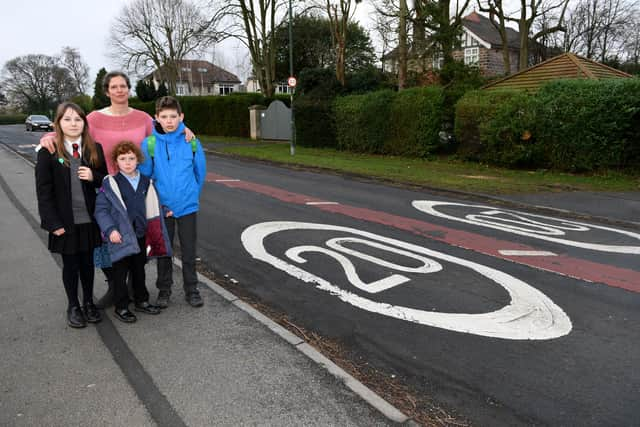Why new 20mph limits are vital at Harrogate's schools and why worried residents want 'action not words'
and live on Freeview channel 276
Despite councillors on the Harrogate and Knaresborough Constituency Area Committee backing their pleas for new road safety measures near the town's schools earlier this month, campaigners are concerned that without a firm commitment to change by North Yorkshire Council's executive real progress will not be made.
Dr Jenny Marks, who first launched a "Pannal Ash Safe Streets Zone" petition last October with neighbour Ruth Lily, said: "We're very happy councillors voted in favour of delivering a new 20mph speed limit on roads across south and west harrogate - an area that would include nine schools.
Advertisement
Hide AdAdvertisement
Hide Ad"The talks with schools and North Yorkshire Council have also been positive.


"Everyone is making the right noises.
"But we want to see change on the ground and, for that, there needs to be timescales."
The significance of the Harrogate residents campaign was highlighted in February when two 15-year-old boys were hit by a vehicle on Yew Tree Lane, near to Ashville College as they walked to school.
Since then, there have been a series of positive meetings in Harrogate between campaigners, school headteachers, residents groups and North Yorkshire Council's executive member for roads and transport, Coun Keane Duncan, and members of the NYC's Highways Team.
Advertisement
Hide AdAdvertisement
Hide AdAlready broad agreement has developed that more traffic measures are required to protect pupils and elderly pedestrians near schools.
Pannal Ash Safe Streets Zone campaigners argue the weight of evidence for 20mph is now overwhelming.
Dr Jenny Marks said: "All the evidence nationally shows the severity of collisions on pedestrians is very different at different speeds.
"If you are hit by a vehicle at 20mph you are five times less likely to be killed than if it is travelling at 30mph.
Advertisement
Hide AdAdvertisement
Hide Ad"Our petition highlights a survey by North Yorkshire County Council showing that found 80% of drivers exceeded the existing speed limit on Pannal Ash Road."
Her views have been echoed by Hazel Peacock and Dr Vicki Evans of the Oatlands Road Safety and Active Travel Campaign.
Speaking at the Harrogate and Knaresborough Constituency Area Committee meeting in early June, they said: "There are more than 4,000 children and young people walking, cycling and travelling by car or bus every day to schools in the area including St. Aidan's Church of England High School, Oatlands Schools and Harrogate College.
"With a further 5,000 attending the schools in the Pannal Ash area such as Harrogate Grammar School, Rossett School and Ashville College, our proposal complements the initiative by Pannal Ash Safe Streets with the aim to deliver better road safety for a total of 9,000 pupils."
Advertisement
Hide AdAdvertisement
Hide AdIn the meantime, transport leader Coun Keane Duncan is expected to present a review of 20mph speed limit policy to a meeting of North Yorkshire County Council's executive on Tuesday, July 4.
The politics of the campaign for road safety near schools in Harrogate is complicated by a separate county-wide ’20’s Plenty’ campaign to pressure the council for a blanket 20mph limit in all towns and villages.
Coun Keane has previously accused that particular group of using “misleading and ruthless tactics” and has raised fears over the costs of implementing a ’20’s Plenty’ policy.